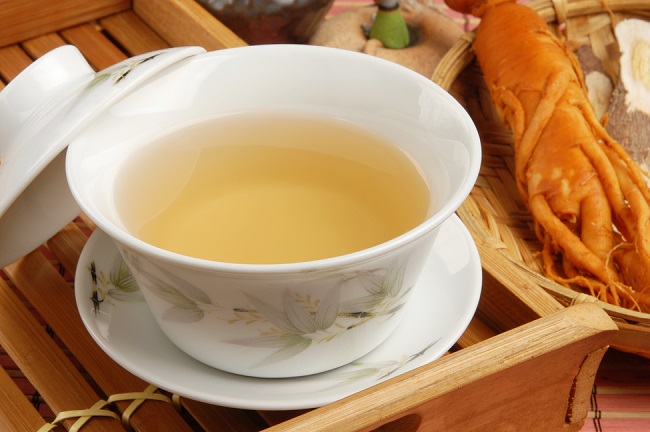Effective Stress Management Techniques for a Balanced Life

Are you feeling overwhelmed by the demands of daily life? Stress can have a significant impact on your physical and mental well-being, but there are effective techniques you can use to manage and reduce stress levels. In this article, we will explore some proven strategies for achieving a balanced life through stress management. Whether you are dealing with work-related stress, relationship issues, or simply feeling burnt out, these techniques can help you regain control and find peace in your daily life.
Table of Contents
Table of Contents
Understanding Stress and Its Impact
What is stress and its common causes
Stress is the body’s natural response to any demand or challenge. It can be triggered by various factors such as work pressure, financial problems, relationship issues, or health concerns. Common causes of stress also include major life changes, traumatic events, and everyday hassles like traffic jams or deadlines.
Effects of stress on physical and mental health
The impact of stress on physical and mental health can be significant. Chronic stress can lead to a variety of health issues, including high blood pressure, heart disease, obesity, and weakened immune system. On a mental level, stress can cause anxiety, depression, irritability, and difficulty concentrating. It can also disrupt sleep patterns and lead to emotional instability.
It is important to recognize the signs of stress and implement effective stress management techniques to maintain a balanced and healthy life.
Effective Stress Management Techniques
Chronic stress can have a negative impact on both our physical and mental well-being. It is important to incorporate effective stress management techniques into our daily routine to maintain a balanced and healthy life.
Mindfulness and Meditation
One of the most effective ways to manage stress is through mindfulness and meditation practices. By being present in the moment and focusing on our breath, we can calm our minds and reduce feelings of anxiety and overwhelm. Regular meditation practice has been shown to lower cortisol levels and improve overall well-being.
Exercise and Physical Activity
Physical activity is another key component of stress management. Exercise releases endorphins, which are known as “feel-good” hormones that can help combat feelings of stress and anxiety. Whether it’s going for a run, taking a yoga class, or simply going for a walk, incorporating regular physical activity into your routine can have a significant impact on your stress levels.
Healthy Eating Habits
What we eat can also play a role in how we manage stress. Eating a well-balanced diet rich in fruits, vegetables, whole grains, and lean proteins can help support our bodies in times of stress. Avoiding excessive caffeine, sugar, and processed foods can also help prevent spikes in cortisol levels and support overall well-being.
Creating a Balanced Lifestyle
In today’s fast-paced world, it’s more important than ever to create a balanced lifestyle that allows you to effectively manage stress and maintain your overall well-being. By setting boundaries and priorities, practicing good time management strategies, and cultivating strong social support and relationships, you can achieve a balanced life that promotes both physical and mental health.
Setting boundaries and priorities
One of the key components of creating a balanced lifestyle is setting boundaries and priorities. This involves learning to say no to things that don’t align with your values or goals, and prioritizing activities that bring you joy and fulfillment. By setting clear boundaries in your personal and professional life, you can reduce feelings of overwhelm and create space for activities that nourish your mind, body, and soul.
Time management strategies
Effective time management is another crucial aspect of creating a balanced lifestyle. By prioritizing tasks, setting realistic goals, and breaking larger projects into smaller, more manageable chunks, you can reduce stress and increase productivity. Additionally, incorporating regular breaks, exercise, and relaxation techniques into your daily routine can help you maintain a healthy work-life balance and prevent burnout.
Social support and relationships
Lastly, cultivating strong social support and relationships is essential for managing stress and promoting overall well-being. Surrounding yourself with positive, supportive individuals who uplift and encourage you can help you navigate life’s challenges with greater ease. Additionally, maintaining healthy relationships with friends, family members, and colleagues can provide a sense of belonging and connection that is vital for mental and emotional health.
By using these strategies into your daily life, you can create a balanced lifestyle that allows you to effectively manage stress and achieve a greater sense of overall well-being. Remember to prioritize self-care, set boundaries, manage your time wisely, and nurture your relationships for a happier, healthier life.
Building Resilience: Strategies for Coping with Stress
Understanding Resilience
Resilience is the ability to bounce back from challenges and adversity. Understanding what resilience entails is crucial for developing effective coping strategies.
Positive Thinking and Reframing
Practicing positive thinking can help reframe negative situations and thoughts into more constructive perspectives. This involves focusing on solutions rather than dwelling on problems.
Developing Emotional Intelligence
Emotional intelligence involves recognizing and managing emotions effectively. Enhancing emotional intelligence can help individuals navigate stressful situations with greater ease and composure.
Setting Realistic Goals
Setting achievable goals and breaking them down into smaller tasks can reduce feelings of overwhelm and boost confidence in one’s ability to overcome challenges.
Mindfulness and Meditation: Cultivating Inner Peace
Introduction to Mindfulness
Mindfulness involves paying attention to the present moment without judgment. It can be cultivated through various practices such as meditation, deep breathing, and mindful activities.
Benefits of Meditation
Meditation has been shown to reduce stress, improve focus and concentration, and enhance overall well-being. Regular meditation practice can promote inner peace and a sense of calm amidst life’s challenges.
Mindful Living
Incorporating mindfulness into daily life activities such as eating, walking, and communicating can deepen one’s sense of presence and connection with the world around them.
Stress-Reducing Meditation Techniques
Different meditation techniques, such as mindfulness meditation, loving-kindness meditation, and body scan meditation, offer unique approaches to calming the mind and reducing stress.
Lifestyle Modifications: Healthy Habits for Stress Reduction
Importance of Physical Activity
Regular exercise releases endorphins, reduces cortisol levels, and promotes better sleep, all of which contribute to stress reduction and improved mood.
Healthy Eating Habits
Eating a balanced diet rich in fruits, vegetables, whole grains, and lean proteins provides essential nutrients that support overall well-being and resilience to stress.
Prioritizing Sleep
Quality sleep is essential for physical and mental health. Establishing a consistent sleep routine and creating a conducive sleep environment can improve sleep quality and reduce stress levels.
Limiting Stressors
Identifying and minimizing sources of stress in one’s environment, whether it’s through time management, boundary setting, or simplifying commitments, can help maintain a healthier lifestyle.
Seeking Support: Building a Strong Social Network
The Importance of Social Connections
Strong social connections provide emotional support, practical assistance, and a sense of belonging, all of which are vital for coping with stress and adversity.
Nurturing Relationships
Investing time and effort into nurturing relationships with family, friends, and community members fosters a support network that can offer comfort and guidance during challenging times.
Effective Communication
Open and honest communication is essential for building strong relationships. Expressing thoughts, feelings, and needs openly can deepen connections and strengthen bonds with others.
Professional Support
Seeking support from mental health professionals, counselors, or support groups can provide additional resources and strategies for managing stress and improving overall well-being.
Final Thoughts:
Implementing effective stress management techniques is essential for achieving a balanced and fulfilling life. By incorporating strategies such as mindfulness, exercise, and healthy coping mechanisms, individuals can better manage their stress levels and improve their overall well-being. It is important to prioritize self-care and make time for relaxation in order to maintain a healthy mind and body. By taking proactive steps to address stress, individuals can cultivate a more positive outlook and enjoy a more balanced and harmonious life.
FAQs:
What is stress management, and why is it important for a balanced life?
- Stress management refers to the techniques and strategies used to cope with and reduce the negative effects of stress on physical, mental, and emotional well-being. It is crucial for a balanced life because excessive stress can lead to various health issues, hinder productivity, and strain relationships.
How can I tell if I’m experiencing unhealthy levels of stress?
- Signs of unhealthy stress levels include physical symptoms like headaches, fatigue, and muscle tension, as well as emotional symptoms like irritability, anxiety, and depression. Additionally, experiencing difficulty concentrating, changes in appetite or sleep patterns, and withdrawing from social activities can indicate high stress levels.
What are some quick stress relief techniques I can use in daily life?
- Quick stress relief techniques include deep breathing exercises, progressive muscle relaxation, taking short breaks to stretch or walk, listening to calming music, and practicing mindfulness or meditation for a few minutes each day.
How does lifestyle affect stress levels, and what lifestyle modifications can help reduce stress?
- Lifestyle factors such as diet, exercise, sleep habits, and time management significantly influence stress levels. Making healthy lifestyle modifications like eating a balanced diet, exercising regularly, prioritizing adequate sleep, and practicing good time management can effectively reduce stress and promote overall well-being.
Is it beneficial to seek professional help for managing stress?
- Yes, seeking professional help from therapists, counselors, or healthcare providers can be highly beneficial for managing stress, especially if it significantly impacts daily life or if coping strategies haven’t been effective. Professionals can offer personalized guidance, therapy, and interventions tailored to individual needs.
How can I build a strong social support network to help manage stress?
- Building a strong social support network involves nurturing relationships with friends, family, colleagues, and community members. This can be done by maintaining regular communication, offering support to others, participating in group activities, and seeking out like-minded individuals who share similar interests and values.
Are there any long-term strategies for stress management that I can incorporate into my lifestyle?
- Yes, long-term strategies for stress management include developing resilience through positive thinking, practicing mindfulness and meditation regularly, maintaining a healthy lifestyle with regular exercise and nutritious eating habits, setting boundaries to manage stressors effectively, and consistently seeking social support when needed. These strategies can help cultivate a balanced and fulfilling life over time.


